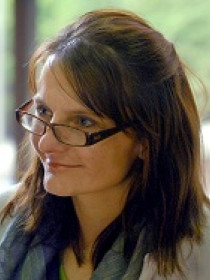
Jennifer Kuzma
Connect with Jennifer
About Jennifer
Kuzma’s work focuses on the interactions among science, technology and society, particularly the governance of emerging technologies. As a subset of this work, she is interested in public and stakeholder engagement in decision-making about emerging technologies, such as genetic engineering, nanotechnology and synthetic biology. Kuzma regularly works with science museums as a speaker and participant in their science cafes, public forums, and meetings on technology and society, and she serves as an adviser to several public agency groups. She also serves on the Food and Drug Administration’s Blood Product’s Advisory Committee.
Contributions
Should Citizens Have a Say about Emerging Technologies?
In the News
Publications
Argues that regulatory agencies would be more, not less, objective with the consultation of groups and citizens outside of industry and regulatory agencies. We draw upon the notion of “strong objectivity” and a reconceptualization of objectivity.
Uses a database and case-study approach to analyze potential future agrifood nanotechnology products, governance and policy issues. Describes “upstream oversight assessment” as a subset of anticipatory governance. Anticipatory governance and UOA are designed to prepare for, not predict, futures of technological governance.